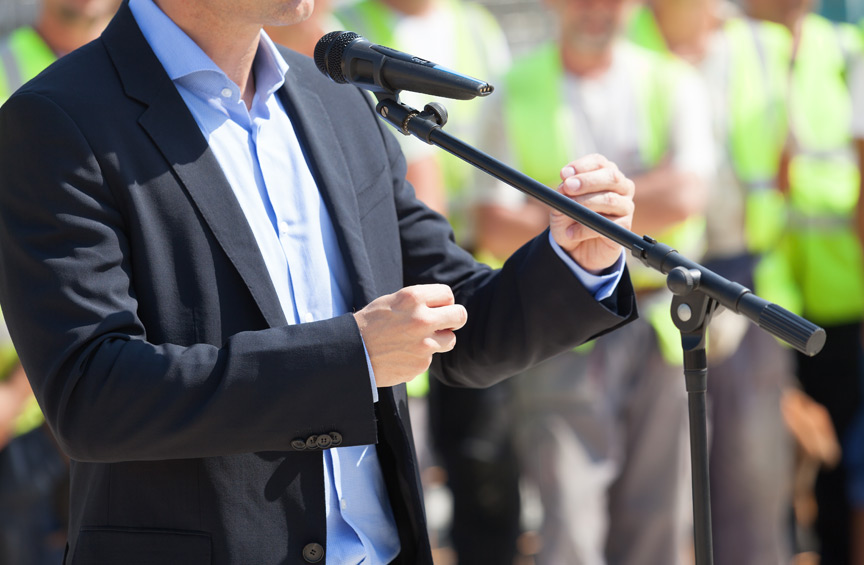In early 2019, the biggest hacker attack in German history stunned their Federal Governing Body. The attackers had specifically targeted politicians, but moderators, activists and YouTubers also saw some of their personal data suddenly go viral.
The hackers publicly exposed identifying documents, which included cell phone numbers and rental contracts. Once this occurred, any interested party could also fish around in the extensive records to see private family chats and e-mail addresses - perhaps even a ticket purchase for “Venus”, an erotic event held in Berlin.
Not just alarming for Germany
The political climate in recent years has included more and more cyber-attacks and conspiracies than ever before. Many may remember the cyber-attacks on US citizens in 2016.
Examples of such entities blocking, stealing and selling very personal information for their own gain has been reported in recent times much more frequently. Especially in cases of those in close contact with political agendas, where a single private person cannot have much impact by themselves.
How you can protect your domain and social media accounts
To protect your digital identity from targeted attacks, start where you have the most vulnerability - your e-mail account. This is especially relevant if you have one main e-mail address which you use for all of your social media accounts like Twitter, Facebook, etc. Once hackers obtain access to this, taking over of other aspects of your online identity with verified password changes is far too easy. Much to your dismay, your online identity ultimately can be controlled from an e-mail account.
Our tips to secure your digital identity: use a difficult password for your e-mail account. We suggest using a long, random letter-number-sign combination. Steer clear of using birthdays and the names of people close to you as these are too obvious and very easy for hackers to guess. Never use the same password across various accounts. Nothing is more detrimental than losing access to one or all of your communication channels because of a successful random hacker attack. It is also best to use a two-factor login for extra security. This means that whenever you log in, not only will your account name and password be requested, but you will also need a single use code, which will be sent to your smartphone.
Why the domain is far from obsolete in election campaigns
Shunning the use of social media can result in an enormous loss of reach for politicians. While this may not be as bad as a hacker attack and the possible damage to reputation when unauthorized third parties take over communication with the public, it can have very undesirable consequences. Politicians quickly fall off the radar in the public’s eye without an internet presence, particularly if they are without a website and/or social media. In the current digital age, online communication is almost more important than giving interviews in traditional media such as television, radio and newspapers. The younger generations gathers their information online rather than from traditional newspapers, magazines or television media.
However, even in today’s multi-layered social media coverage, politically correct domain names are just one more avenue for politicians to get their campaign messages across while reaching their potential constituent bases more effectively. But they need to be savvy and proactive against their political opponents using negative “mud-slinging” campaign tactics online. A good example was the case of presidential hopeful Carly Fiorina, which she talked about on Late Night with Seth Meyers.
It is therefore advisable to use a multipronged strategy and not to rely on a single social media platform. Twitter, Facebook, and Instagram are all effective tools to transmit your stance on important current topics quickly and reliably. However, such posts are rarely have sticking power because of the limited text length, and the trend of rapid consumption of as many reports as possible by the public.
Websites are more sustainable than social media
Websites are different. You can introduce yourself and your goals – and ensure that your audience gets to know your true personality beyond just your name. You can also go into detail on the topics that are important to you. This is much more sustainable and will be permanently indexed by search engines, enabling your opinions and ideas visibility on the internet long-term.
By strategically optimizing content relevant to important topics within your campaign, you can position yourself sustainably in the search results of established search engines such as Google and Bing. This also produces a safety net to fall back on if something goes wrong with your social media and you need to deactivate your accounts temporarily.
How to establish and promote your domain through domain-centered advertising will be covered in another blog post at sedo.com. Many of the tips we feature in that post can also be applied toward political websites.
